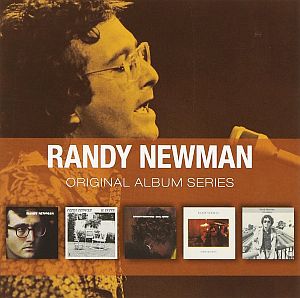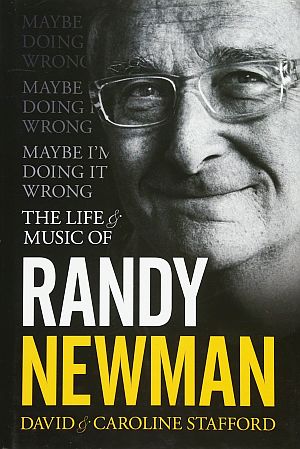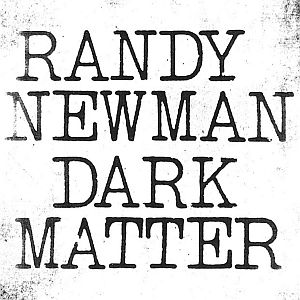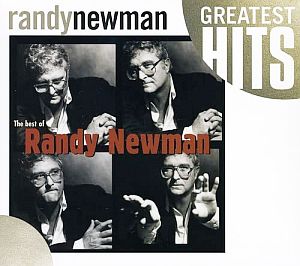
One of the songs from Randy Newman’s 1972 album. “Sail Away,” is titled “Political Science.” Click for CD, digital or vinyl.
Music Player
“Political Science”
Randy Newman – 1972
[see lyrics below]
Among this work were two albums in particular, Sail Away of 1972, followed two years later by Good Old Boys. One of the songs from Sail Away is titled “Political Science,” and is the focus of this story.
“Political Science” takes aim at a Cold War terror in a comical way, using extreme American nationalist sentiment in jingoist form – calling for the use of “the big one,” the atomic bomb – on all those “undeserving and ungrateful” nations.
As the narrator sings his tune, he uses the voice of a somewhat frustrated “everyman” character – an Archie Bunker-type patriot who finds an ungrateful world of nations out there who don’t appreciate America’s generosity and Cold War restraint. And hey, we give them money, but what do we get in return – not a damn thing! They don’t respect us! “To heck with that,” he more or less concludes. “Let’s pulverize them!”

The Archie Bunker-type super-patriot who inhabits Randy Newman's song as narrator, concludes that "dropping the big one" is the best way to deal with all those ungrateful nations who don't respect us !
In making his case, the narrator explains, that each of the target nations he ticks off have drawbacks anyway, which he proceeds to list: “Asia’s crowded… Europe’s too old…Africa’s far too hot…And Canada’s too cold …” And one continent even “stole our name” – South America!
|
“Political Science” No one likes us But all around We give them money They don’t respect us Asia’s crowded And South America stole our name We’ll save Australia Boom goes London And every city the whole world round You’ll have Japanese kimonos, baby |
Still, the mad-bombing narrator moves to spare Australia – “Don’t want to hurt no Kangaroo.” And besides, we could build an all- American amusement park there – surfing included !
But Paris and London aren’t spared, as he sings: “Boom goes London, And boom Paris [Pa-ree]; More room for you. And more room for me.”
In the end, after the bombing, “every city, the whole world round, will just be another American town.” How peaceful it will be, he concludes. “We’ll set everybody free.”
Then he posits material gain for future shoppers and travelers in this America-made-safe world, presuming, perhaps, that a material-sparing neutron bomb has been used in some locations. “You’ll have Japanese kimonos, baby; there’ll be Italian shows for me!”
Newman’s “Political Science” song, along with the Sail Away album – while not chart-busting top hits (Sail Away hit No. 163 on the Billboard 200 albums chart, and No. 42 in Australia) – have been lauded over the years as important music and commentary.
In 2011, Conor Friedersdorf, writing for The Atlantic, nominated “Political Science “ as one of 11 songs that he believed belong in the Hall of Fame for Political Songs, adding: “We’ll know we’re in trouble if a presidential candidate tries to use this as his campaign song without irony.” Well, in fact, over the years, the comic irony of the song has faded, as all-to-real political science emerged.
Satire-to-Prophecy?
Newman wrote “Political Science” well before a more belligerent tone about nuclear weapons began finding its way into subsequent American political administrations and policy circles. Later American military interventions abroad also arrived.
During the Reagan years of the 1980s there was talk of “a winnable nuclear war” among some Reagan aides. Concerns also emerged about plans at the time to deploy medium-range American-made nuclear missiles in Europe increasing speculation that a nuclear war could erupt on the Continent, leaving the U. S. unscathed.
And in the early 2000s, following the 9/11 attacks, “Political Science” took on a whole new meaning, with the War in Iraq.
In 2002, as some Western European countries opposed U.S. invasion plans, Defense Secretary Donald Rumsfeld told a news briefing he thought of Germany and France as “old Europe,” which struck Newman when he heard it, hinting at some of the song’s lyrics.
In October 2003, a review of Newman’s work in The Guardian, noted: “It is more than 30 years since Randy Newman wrote Political Science. Yet in the past few weeks the song has been quoted everywhere from Baghdad to London to Washington as a musical interpretation of American foreign policy, a satirical masterpiece and a dire warning of plans for global annihilation….Last month [Sept 2003], an imam at a mosque in Baghdad quoted the song as evidence of American intentions.”
Other newspaper columnists writing on European and American foreign policy differences and other matters in that period, such as New York Times columnist Thomas Friedman, and British correspondent, Miles Kington, also cited Newman verses from the song in their stories. Kingston, in fact, after George W. Bush proclaimed the allies had prevailed in Iraq, suggested Bush study the lines of “Political Science,” some of which he reprinted in the column.

Donald Trump was certainly not in the picture when Randy Newman first penned “Political Science” in 1970, but his rhetoric, tweets, and bellicose threats during his campaigns and Presidency, have turned the satire on its head.
By the time Donald Trump began his run for the White House, and during his time in office, Newman’s song again came a little too close to reality, as Trump’s speeches and tweets played fast and loose with American might and/or nuclear Armageddon, whether in the form of his NATO rants and bullying, or threats of “fire and fury” for North Korea. And in the more recent times of the early 2020s, there has been talk of tactical nuclear weapons use in the war in Ukraine, though now by Russia’s president-madman and Trump pal, Vladimir Putin.
Prolific Career
Randy Newman, of course, bears none of the real world nuclear madness; he is only the messenger. And while the satirical tunes in Sail Away and Good Old Boys are good starting points for those who may not know of Newman’s earlier music, there is a lot more to know about Randy Newman’s career. His song-writing bona fides date to the 1960s, with hit songs for a range of singers and groups, such as the Fleetwoods, Cilla Black, Gene Pitney and others. In addition, Ray Charles, Etta James, Linda Ronstadt, Ann Wilson, Dave Matthews, Jerry Butler, Petula Clark, Dusty Springfield, Jackie DeShannon, and the O’Jays are among those who have covered his songs. In 1970, Harry Nilsson recorded an entire album of Newman compositions, Nilsson Sings Newman, in which Newman played piano. The group, Three Dog Night made a huge 1970 No. 1 hit of his “Mama Told Me Not to Come.” Newman’s album, 12 Songs, of 1970, was lauded as the 6th best album of the seventies according to the well-regarded Rolling Stone critic, Robert Christgau.

Randy Newman, circa 2017, around the time he was promoting his “Dark Matter” album. Photo, Jordan Strauss/Invision/AP.
Since the 1980s, Newman has worked mostly as a film composer, work for which he has become quite famous, in some ways eclipsing his earlier singing career. He has composed music for nine Disney-Pixar animated films, including all four Toy Story films (1995–2019), A Bug’s Life (1998), both Monsters, Inc. films (2001, 2013), and two Cars films (2006, 2017), as well as Disney’s James and the Giant Peach (1996) and The Princess and the Frog (2009). Other film scores by Newman, some dating to earlier years, include Cold Turkey (1971), Ragtime (1981), The Natural (1984), Awakenings (1990), Pleasantville (1998), Meet the Parents (2000), Seabiscuit (2003), and Marriage Story (2019).
For his film composing, Newman has received 22 Academy Award nominations in the Best Original Score and Best Original Song categories and has won twice in the latter category. He has also won three Emmys and seven Grammy Awards. In 2002, he was inducted into the Songwriters Hall of Fame, and in 2013, the Rock and Roll Hall of Fame.
|
“Studio Albums” Randy Newman |
At the latter Rock Hall induction, Newman was lauded by his friend, Don Henley of the Eagles, who delivered a generous and glowing tribute, noting that Newman’s studio albums constituted “an extraordinary body of work” – songwriting and musicianship, said Henley – “of tremendous scope and skillfulness.” And Henley added:
…No one has written more beautifully about love and loss; no one has written more bravely about racism and religion and politics and war; no one has written with more humor and wit about lust and greed and fame and the family dynamic… And yet, the general public all too often knows Randy only as the guy who wrote that song about short people and that ‘I Love L.A.” thing…
In recent years, Newman has returned to studio recordings with later albums. All told, Randy Newman has released 11 solo studio albums, 2 live albums, 6 compilation albums, two extended plays (EPs), 15 singles, 1 musical, and 23 soundtrack albums.
In 2020, the album Sail Away was ranked No. 268 on Rolling Stone magazine’s list of “The 500 Greatest Albums of All Time.” Some regard that album and 1974’s Good Old Boys – reaching No. 36 on the Billboard 200 albums chart at the time – among his best in the realm of satire.
Sail Away’s title track – a satirical treatment of African slaves being enticed to an American “promised land” – also appears on Rolling Stone‘s “500 Greatest Songs of All Time.” That song, along with “Political Science,” was released as an A-side single in 1972, but did not chart.
Of other albums, Little Criminals in 1977, rose to No. 9 on the Billboard 200, also achieving Gold sales status and reaching No. 3 in the Netherlands. His albums after that all charted, with varying performance depending on country. In 2008, Harps and Angels hit No. 30 on the Billboard chart, equaling that or better on several European charts.
A number of Newman’s songs have held up very well with time. His piano ballads can be especially penetrating and haunting, as in “Baltimore,” on the 1977 Little Criminals album, or sympathetic-sounding, as in a working-man ode that is “Birmingham” on Good Old Boys.

A younger Randy Newman at the piano, circa 1970s.
Music Player
“Louisiana”
Randy Newman – 1974
Randy Newman has also had his share of controversy, with songs such as “Short People” (a No. 2 hit and a Gold record) from Little Criminals, or “Rednecks” on 1974’s Good Old Boys, which in the latter case dealt with racial bigotry in the north and south, and which Newman has argued that his choice of language – use of the “n” word in that song – was aimed at authentically conveying character and culture.
Others songs, such as 1988’s “It’s Money That Matters,” have also had worthy subjects, in this case, lamenting both poverty and consumerism. And 1999’s “The Great Nations of Europe,” from the Bad Love album — though not as easy listening as some of his more popular tunes — excoriates the 16th century European colonialists and conquistadors in the Americas, noting in part: “… So they looked to the mighty ocean and took to the western sea / The great nations of Europe in the 16th century / Hide your wives and daughters / Hide the groceries, too / The great nations of Europe coming through” – including Columbus, Balboa, et.al., and their share of Indian genocide.
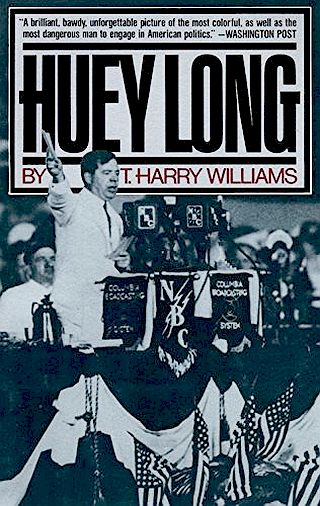
1981 paperback edition of T. Harry Williams’ biography, “Huey Long,” which was a winner of the Pulitzer Prize and the National Book Award. Click for copy.
Music Player
“Kingfish”
Randy Newman – 1974
Newman’s songs make you want to learn more about the subjects he offers. Still, these are only a few of his treasures, as there is much more to glean from the Randy Newman songbook. And he’s not done yet.
In fact, for one of his more recent albums, Dark Matter (2017), Newman was considering a song about Donald Trump. The satire this time was to be aimed at Trump’s braggadocio regarding his male endowment. But to his credit, Newman decided not to include it. “I did write about him. But the language was too vulgar… I just didn’t want to add to the problem of how ugly the conversation we’re all having is, so I didn’t put it out.”
See also at this website, “Burn On, Big River,” a story about the pollution of Ohio’s Cuyahoga River, with an introduction in song by way of Randy Newman’s ode about that river – also from the Sail Away album. Another story at this website on nuclear weapons-related history and politics can be found at “Russians,” a song by Sting that includes history on nuclear bomb designer Robert Oppenheimer, Russian political leader Nikita Khrushchev, Ronald Reagan, the global Nuclear Freeze movement of the 1990s, and more… For additional stories on “Music” or “Politics” at this website, see those respective category pages.
Thanks for visiting — and if you like what you find here, please make a donation to help support the research, writing and continued publication of this website. Thank you. – Jack Doyle
|
Please Support Thank You |
____________________________________
Date Posted: 30 January 2023
Last Update: 30 January 2023
Comments to: jackdoyle47@gmail.com
Twitter: https://twitter.com/PopHistoryDig
Article Citation:
Jack Doyle, “Political Science: Randy Newman Music,”
PopHistoryDig.com, January 30, 2023.
____________________________________
Sources, Links & Additional Information
“Sail Away (Randy Newman album),” Wiki-pedia.org.
John Rockwell, The Pop Life: “Randy Newman Views Land of Stephen Foster,” New York Times, September 20, 1974.
Bernard Gwertzman, “Reagan Clarifies His Statement on Nuclear War,” New York Times, October 22, 1981.
Bob Baker, “Not Laughing Anymore,” Los Angeles Times, August 30, 2003.
Duncan Campbell, “`I Don’t Care About Anyone’s Feelings’; Randy Newman Would Sell His Soul for a Song – If He Believed He Had a Soul. Duncan Campbell Meets the U.S. Singer-Songwriter,” TheGuardian.com, Octo-ber 2,2003.
“Political Science, Randy Newman,” Song Meanings.com, Comment by pconl, March 24, 2008.
“Randy Newman – Political Science (Let’s Drop the Big One Now),” YouTube.com, posted by Joe Ramen, October 21, 2008.
Conor Friedersdorf, “11 Tracks That Belong in the Hall of Fame for Political Songs,” TheAtlantic.com, October 27, 2011.
“Song of the Day #1,430: ‘Political Science’ – Randy Newman,” MeetInMontauk.com, June 11, 2012.
Randy Newman, Induction, Rock and Roll Hall of Fame,” RockHall.com, April 2013 (induction speech by Don Henley).
Bud Scoppa, “Randy Newman: ‘I Always Wrote Slightly Off-The-Wall Things’,” Rock Hall.com / Rock & Roll Hall of Fame, 2013.
Kevin Courrier, “A Drama of History: The 40th Anniversary of Randy Newman’s Good Old Boys,” CriticsAtLarge.ca, September 13, 2014.
Library of Congress, “A Conversation with Randy Newman,” YouTube.com, September 29, 2014.
David Marchese, “Randy Newman on Trump, Putin, and His New Album,” Vulture.com, July 19, 2017.
Steven Wine, Associated Press, “Randy Newman at Top of His Game on New Album, ‘Dark Matter’,” FayObserver,com / The Fay-etteville Observer, August 7, 2017.
Conor Friedersdorf, “The Dark Matter of America’s Foremost Musical Satirist; Randy Newman Has Done as Much as Any Songwriter to Anticipate the Tragicomic Place Where the Country Finds Itself. And His Best Work May Still Be Ahead,” TheAtlantic.com, August 16, 2017.
Bo Emerson, “Randy Newman’s ‘Dark’ and Light Side,” AJC.com / The Atlanta Journal-Constitution, November 15, 2017.
Greg Bailey, “This Randy Newman Song from 1972 Is Startlingly Relevant for the Trump Era,” HistoryNewsNetwork.org, January 28, 2018.
Lawrence Donegan, “Randy Newman: ‘I’ve Written a Song about Trump and Ivanka – But it Needs a Little Work’. The Great Songwriter Talks about Politics, Toy Story and the Smiths – And Why He’s Never Enjoyed the Writing Process,” TheGuardian.com, January 21, 2018.
“Randy Newman,” Wikipedia.org.
“Randy Newman Discography,” Wikipedia .org.
David Axe, “Donald Trump Is A Nuclear President — His Legacy Is More Nukes, Fewer Controls,” Forbes.com, December 24, 2020.
Elle Hunt, “Randy Newman’s 20 Greatest Songs – Ranked! As Trouble in Paradise – Which Gave the World ‘I Love LA’ – Turns 40, We Celebrate the Satirical Singer-Songwriter’s Best Work,” TheGuardian.com, January 5, 2023.
